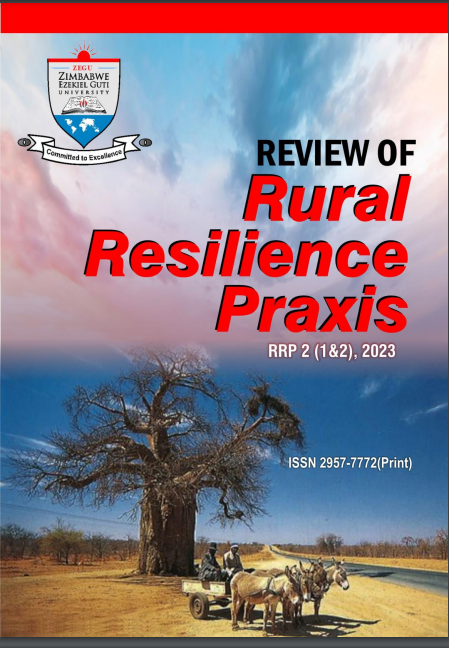Groundwater depletion and its implications for rural livelihoods in Zimbabwe
DOI:
https://doi.org/10.71458/epzh4r93Keywords:
poverty and reservoir, sustainable, climate change, water table, AgricultureAbstract
This study critically explores the adverse impacts of groundwater depletion on the livelihoods of people in the rural areas of Zimbabwe. Water is one of the most important aspects of rural livelihoods in Zimbabwe as most of these livelihoods are centred on agriculture. We proffer the argument that, owing to the adverse effects of climate change, water scarcity has become more common in most areas and its effects are being felt and adversely experienced among the livelihoods in various rural settings where the supply of clean water has always been a major problem. This study is based on primary and secondary data with primary data collected through field surveys. Many rural residents were interviewed through questionnaires on how the depletion of water is a major crisis and threat to their livelihoods. Secondary data sources including articles, journals, books, report documents and case studies from various recognised publications. The data was analysed using qualitative techniques and presented using thematic analysis. The findings claim that the depletion of groundwater is a major threat to the livelihoods of the rural population. The reduction of groundwater has led to the abandonment of agricultural livelihoods by the people in Zimbabwe’s rural areas. The depletion of groundwater is a result of continued use with failure to recharge. Due to the chain of reliance on agriculture and crop cultivation in rural areas, most livelihoods are affected by the groundwater crisis. There are no more or less surplus products to trade for other goods or income and those relying on selling labour continue to suffer more and migrate to urban areas for better opportunities thus having an impact on population distribution in rural areas. Lack of other means of acquiring water and outbreak of diseases have a huge influence also on livelihoods. The study concludes that rural livelihoods need to be rethought and ways must be sought of ensuring robust and sustainable rural communities. It is proposed that smart technologies should be used for rural livelihoods.




